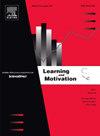运动行为研究的三十年神经反馈:对健康年轻人的系统回顾
IF 1.8
4区 心理学
Q3 PSYCHOLOGY, BIOLOGICAL
引用次数: 0
摘要
神经反馈是一种很有前途的工具,通过将最佳大脑状态整合到实践中来增强运动行为。本综述系统地绘制了关于神经反馈对健康年轻人运动表现影响的现有证据。文献检索于2023年1月在PubMed、Scopus和Web of Science中进行,涵盖1990年至2023年发表的研究。在筛选的5271份记录中,有43项研究符合纳入标准,涉及1290多名参与者。这些研究共产生了56项具体方案分析。其中25人没有将运动练习纳入神经反馈方案,仅仅依靠前测后测设计。11项分析包括在神经反馈之前的练习,而9项分析在运动执行期间提供神经反馈。研究结果表明,许多研究在设计神经反馈干预措施时忽视了既定的行为原则。基本的方法方面,如性别差异、侧边性和学习的评估,往往被忽视。此外,关于神经反馈对增强运动学习的有效性的证据仍然有限。检查各种运动任务的研究质量,包括视觉运动适应、顺序运动执行和时间表现,主要是低到中等。这些缺点强调了在未来的研究中需要更严格和行为知情的方法。本文章由计算机程序翻译,如有差异,请以英文原文为准。
Three decades of neurofeedback in motor behavior research: A systematic review in healthy young adults
Neurofeedback is a promising tool for enhancing motor behavior by integrating optimal brain states into practice. This scoping review systematically mapped the available evidence on the effects of neurofeedback on motor performance in healthy young adults. Literature searches were conducted in PubMed, Scopus, and Web of Science in January 2023, covering studies published from 1990 to 2023. Of the 5271 records screened, 43 studies met the inclusion criteria, involving over 1290 participants. These studies yielded a total of 56 protocol-specific analyses. Among them, 25 did not incorporate motor practice into the neurofeedback protocol, relying solely on a pretest-posttest design. Eleven analyses included practice sessions prior to neurofeedback, while nine delivered neurofeedback during motor execution. The findings revealed that many studies have overlooked established behavioral principles when designing neurofeedback interventions. Basic methodological aspects, such as sex differences, laterality, and the assessment of learning, were often neglected. Furthermore, evidence regarding the effectiveness of neurofeedback for enhancing motor learning remains limited. The quality of studies examining various motor tasks, including visuomotor adaptation, sequential movement execution, and temporal performance, was predominantly low to moderate. These shortcomings underscore the need for more rigorous and behaviorally informed approaches in future research.
求助全文
通过发布文献求助,成功后即可免费获取论文全文。
去求助
来源期刊

Learning and Motivation
Multiple-
CiteScore
2.90
自引率
0.00%
发文量
53
期刊介绍:
Learning and Motivation features original experimental research devoted to the analysis of basic phenomena and mechanisms of learning, memory, and motivation. These studies, involving either animal or human subjects, examine behavioral, biological, and evolutionary influences on the learning and motivation processes, and often report on an integrated series of experiments that advance knowledge in this field. Theoretical papers and shorter reports are also considered.
 求助内容:
求助内容: 应助结果提醒方式:
应助结果提醒方式:


